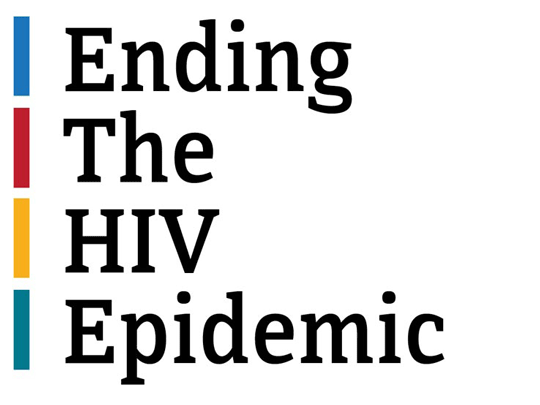Admiral Rachel Levine and ONAP Director, Harold Phillips, Visit San Francisco Bay Area for Ending the HIV Epidemic Meeting
Topics

Harold Phillips, Director of the White House Office of National AIDS Policy (ONAP) and the Assistant Secretary for Health, Admiral Rachel Levine, MD recently traveled to San Francisco Bay Area and heard from health department and community partners about efforts to accelerate the Ending the HIV Epidemic in the U.S.(EHE)initiative and specific local priorities within several jurisdictions.
On June 10, the San Francisco Department of Public Health hosted an Ending the Epidemics meeting, bringing together several local health departments and community-based programs from the area, including Alameda CountyExit Disclaimer, Contra Costa CountyExit Disclaimer, and the Office of AIDS from the California Department of Public Health. Participants shared their efforts and progress toward ending the HIV epidemic and addressing the syndemics of HIV, hepatitis C, sexually transmitted infections (STIs), and substance use and overdose.
Topics included an overview of Getting to ZeroExit Disclaimer efforts in San Francisco and the East Bay and California’s overall (PDF, 2.6 MB) strategy for the EHE initiative. Presenters underscored the importance of a regional approach to addressing HIV and related issues and emphasized that more could be done—with additional funding flexibilities—to achieve a coordinated response. As part of its work to innovate its approaches, the San Francisco Department of Public Health released a request for proposals that integrates HIV, hepatitis C, and STI funding to organizations and distributes funds partially based on disparities facing different communities within the city.
“Hearing about coordinated efforts across the Bay Area and in the state of California was inspirational for my first post-COVID visit to EHE communities as director of the White House Office of National AIDS Policy,” reflected Harold Phillips. “Health departments and community based organizations demonstrated that by taking a holistic approach, tackling the syndemics of HIV, STIs, hepatitis, behavioral health, insecure housing, and substance use; and listening to the voices of impacted communities, and leading with the data on health inequities, programs can decrease the number of new infections and increase health outcomes for those with HIV.”
Another highlight of the meeting was learning about the San Francisco-run City ClinicExit Disclaimer, which provides about 17,000 visits annually and is a one-stop-shop for integrated services, including behavioral health, pre-exposure prophylaxis (PrEP) and post-exposure prophylaxis (PEP), STI, HIV, hepatitis C testing, women’s health, and overdose prevention services, including dissemination of Narcan and fentanyl test strips.
Admiral Levine and Mr. Phillips heard about innovative programming to address mental health needs for Black women and the San Francisco Gender HealthExit Disclaimer program that assists transgender people receive gender-affirming care and services and provides workforce development opportunities for transgender communities. The health of people who use substances and programs aimed at engaging specific communities, such as people experiencing homelessness and Latinos, were also discussed, as was the need for more training and capacity-building assistance funds for local home-grown organizations in impacted communities, and the difficulties of accessing affordable housing.
Central to the EHEinitiative and the National HIV/AIDS Strategy is listening to people with lived experience. Equally important is communities implementing innovative approaches and understanding ongoing successes and challenges. Also, follow our social media channels (FacebookExit Disclaimer, TwitterExit Disclaimer, and InstagramExit Disclaimer) and sign up for updates.